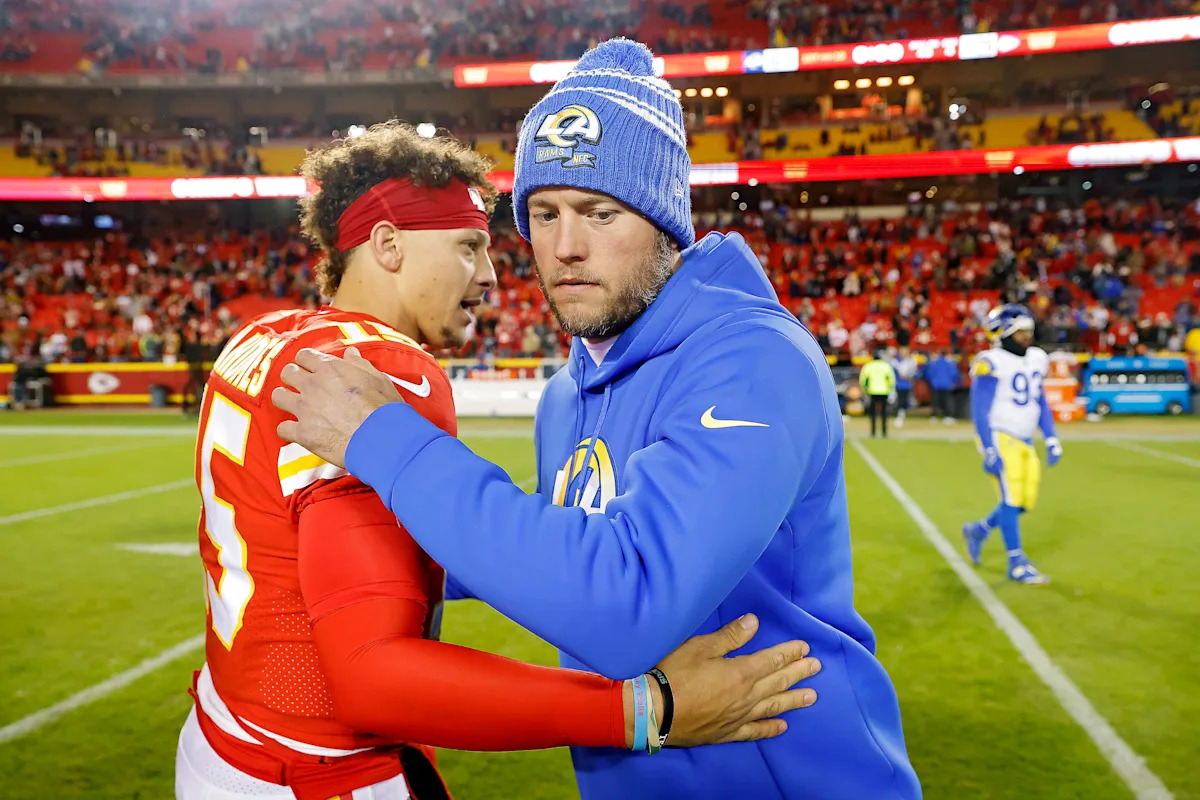Soccer tends to be a sport dominated by younger athletes, with players often facing a decline after the age of 32. Running backs face an even earlier cut-off, with many being considered past their prime once they reach 29. In contrast, elite quarterbacks often seem timeless. Legends like Tom Brady and Drew Brees exemplified this longevity, and even Aaron Rodgers returned from a torn Achilles to play at 40 last season.
Matthew Stafford, the starting quarterback for the Los Angeles Rams, is approaching that veteran status at 37. While still capable of performing well, Stafford has expressed little interest in transitioning to flag football, a sport allowed at the 2028 Los Angeles Olympics. Although he joked about possibly coaching the Olympic team, he made it clear playing isn’t on the agenda. Considering he’ll be 40 when the Olympics occur, balancing an NFL season alongside preparing for the Games seems unrealistic.
Similarly, Kansas City Chiefs’ star Patrick Mahomes, currently 29, is opting out of the Olympic flag football scene, suggesting that younger players should take on that opportunity. Though Mahomes will still be at an impressive point in his career at 32 during the 2028 Olympics, he believes it’s better suited for emerging talent in their early 20s.
Both Stafford and Mahomes highlight a key point: the future of Olympic flag football lies with the younger generation. Imagining Stafford as a passionate coach with a clipboard at the Olympics is entertaining and could add value to the event if it happens.
Fan Take: This news matters to NFL fans because it highlights the evolving role of veteran players as the sport grows and new competitions like Olympic flag football emerge. It also emphasizes the importance of nurturing young talent who will carry football forward on global stages, potentially expanding the sport’s reach and appeal.



